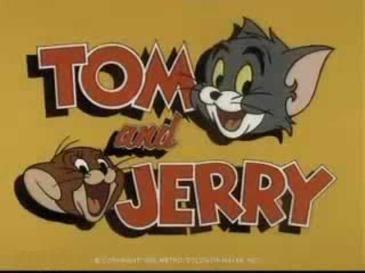
猫和老鼠喜剧秀
TAGS:
CV:
INTRODUCE:
This was the second made-for-television Tom and Jerry production. The series was notable in being the first attempt since the closing of the MGM studio in the 1950s to restore the original format of the cat and mouse team. After the original 114 theatrical shorts run of the William Hanna-Joseph Barbera directed series, the characters were leased to other animation studios who changed the designs, and eliminated all of the supporting characters. The previous made-for-TV Tom and Jerry Show for the ABC network in 1975 was produced by Hanna and Barbera under their own studio (with MGM), but had made the cat and mouse friends in most of the episodes, due to the reaction against violence in cartoons. The version by Filmation (Hanna-Barbera's leading competitor for TV animation at the time) was able to restore the familiar slapstick chase format, and reintroduced not only Tyke and Nibbles, but also some of the other MGM stars. Half hour shows would consist of two seven-minute Tom and Jerry episodes, plus one Droopy cartoon in the middle, featuring some other characters such as Barney Bear. Spike from Tom and Jerry was used in many of these Droopy episodes as well, filling in for the other "Spike" bulldog created by Tex Avery for the old Droopy films, who was not used as a separate character here. The villainous wolf from the classic series was also included, and named "Slick Wolf". Still missing was the "Red Hot Riding Hood" character, who would not reappear until the following made for TV series, Tom & Jerry Kids, in 1990. Characters not seen in this series of Tom and Jerry shorts are Mammy Two Shoes, Butch, Quacker, Topsy, Lightning and Toodles Galore. The show's opening begins with Tom chasing Jerry through a blank yellow screen. They continue chasing, as all of the other stars build a giant "Tom & Jerry" sign (similar to the second opening of Tom & Jerry Kids). The familiar rotating executive producer credit of Lou Scheimer and Norm Prescott briefly runs as Tom chases Jerry past the screen, knocking things over and running over others along the way. After the opening sequence, the wraparound segments, hosted by Droopy, would begin. He would start by painting the whole background with a single large brush stroke (making stylistic use of Filmation's characteristic "limited animation" technique), and he and the other speaking characters would engage in brief comedic sketches (like Droopy's opening poem in one of them "Roses are red, violets are blue, painting's my job, that's what I do; cute and somewhat wet"). In addition to the animation, the show was characterized by very limited music score; all of the episodes, both Tom & Jerry and Droopy, used the same stock, mostly created new for the series, but consisting of only a handful of largely synthesized tunes, either with minor variations or played at different speeds or pitches. This did match the chase scenes, but gave the episodes a very monotonous soundtrack, making these episodes "stand out" to many Tom & Jerry viewers when they aired. Where the original series and the third series by Chuck Jones would have favorable endings for Tom occasionally, this series followed the second series by Gene Deitch in never having definite "wins" for Tom. Also similar to the Deitch films is the character design, in them being drawn similar to the original, but still slightly different. The Droopy episodes would usually feature Slick and sometimes Spike being antagonists to Droopy. Barney had miscellaneous roles, such as being the boss of movie studio guard Droopy in "Star Crossed Wolf", and a frightful companion to Droopy in a haunted house in "Scared Bear". Frank Welker provided all the voices in the Tom and Jerry and Droopy segments for the first six episodes, therefore also voicing most of the female characters, which proves that he cannot do female voices very well. Despite that, there were some female characters voiced by Jay Scheimer, Erika Scheimer and Linda Gary. Filmation head Lou Scheimer provided Jerry's laugh, and provided the voice of Nibbles (erroneously giving him an adult voice). When the 1980 Screen Actors Guild strike occurred, Welker was unable to continue, so Scheimer had to fill in as voice actor instead, and recordings of Tom and Jerry's vocal effects provided by Welker from previous episodes were reused. The show itself was originally going to be called The Cat and Jam Comedy Show.
TAGS:
TV 欧美 童年 1980 原创 搞笑 Animation 猫和老鼠 1980年
CV:
William Hanna